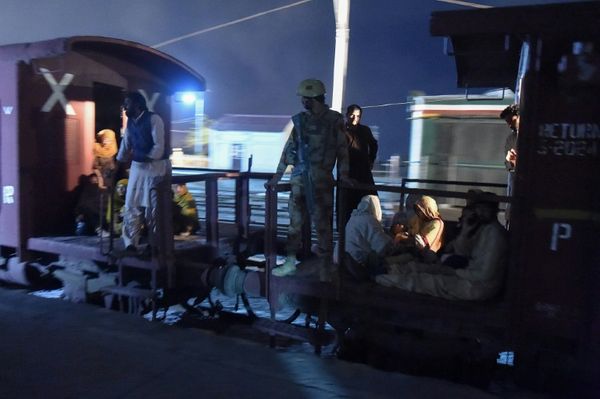
Iranian President Ebrahim Raisi said his government would take revenge from "the architects of the conspiracy."
The official IRNA news agency quoted Raisi as saying in a telephone conversation with the family of a deceased Basij officer that the responsible authorities are keen to take revenge from those responsible for this crime.
For his part, the spokesman for National Security and Foreign Policy Parliamentary Commission, Abolfazl Amouei, said that a group of conservative MPs discussed security developments with officials from the Ministry of Intelligence.
According to Tasnim News Agency, Amouei indicated that recent developments have social foundations, but at the same time, the revolution's enemies seek to destabilize the country.
He added that the lawmakers demanded a strict confrontation with the counter-revolutionary groups.
Judiciary spokesman, Masoud Satayshi, said that former reformist MP Faezeh Hashemi, daughter of former President Ali Akbar Hashemi Rafsanjani, faces charges of propaganda against the regime, calling for gatherings, and disrupting public order.
He announced that Hashemi was "temporarily detained."
Hashemi was arrested on the 11th night of the protests, and hours after her arrest, Tasnim Agency quoted an informed source saying that one of the security services had arrested her for "inciting protestors to create chaos."
A member of the Expediency Discernment Council, Mohammad Sadr, warned that the authority "cannot rule by force," noting that the developments following Mahsa Amini's death resulted from accumulated resentment and repeated demands of people, especially the young and women.
Sadr, who ran several times for the Foreign Minister position, told the Jamaran website that "the security vision itself threatens security," calling for a change in the security position of the ruling institution.
Several newspapers criticized the Commission for the Promotion of Virtue and the Prevention of Vice and its Secretary General Mohammad Salih Hashemi Gulbaigani after he incited state agencies to impose strict veil laws.
The conservative Farheekhtegan newspaper headlined: "The Hate Production Factory," warning that the Commission's head and officials exacerbated social rifts.
Late Monday, Iran's Foreign Ministry summoned the British ambassador to protest the UK's imposition of sanctions on Iran's morality police over the death of Amini.
The Ministry told the British ambassador that the sanctions imposed by the UK "are distorted and have no value for the Islamic Republic of Iran."
The ambassador was also informed that Iran "reserves its right to take countermeasures," state media added.
This is the third time Iran has summoned the British ambassador since the outbreak of protests last month.
Britain announced sanctions against Iran's morality police in its entirety as well as its chief, Mohammed Gachi, and the head of its Tehran division, Haj Ahmad Mirzaei in response to the violent suppression of protests since the death of Amini in police custody.
Recently, Western countries, including the United States and Canada, imposed sanctions on Iranian officials, accusing them of "suppressing" the protests.
The European Union is also considering imposing "restrictive measures" on Tehran.
White House National Security Adviser Jake Sullivan said, "The world is watching what is happening in Iran."
"These protestors are Iranian citizens, led by women and girls, demanding dignity and basic rights," Sullivan wrote on Twitter.
"We stand with them, and we will hold responsible those using violence in a vain effort to silence their voices."
Meanwhile, reformist Etemad newspaper quoted Iranian-US sociologist Asef Bayat saying people wish to take back the everyday life that has been taken away from them.
Bayat believes this movement seeks life, and the protesters feel that achieving basic demands is being violated by the ruling establishment, unaware of the people's hopes and suffering.
He indicated that former protests focused on economic and living issues. However, the current movement is "comprehensive and unified," able to bring together different classes and nationalities from all over the country.
The Emtedad website quoted Bayat as saying that "women have taken the lead in Iran in the struggle against the authoritarian regime."
He described the uprising in Iran as an all-encompassing movement that has gathered together all Iranians regardless of their social class and ethnicity.







